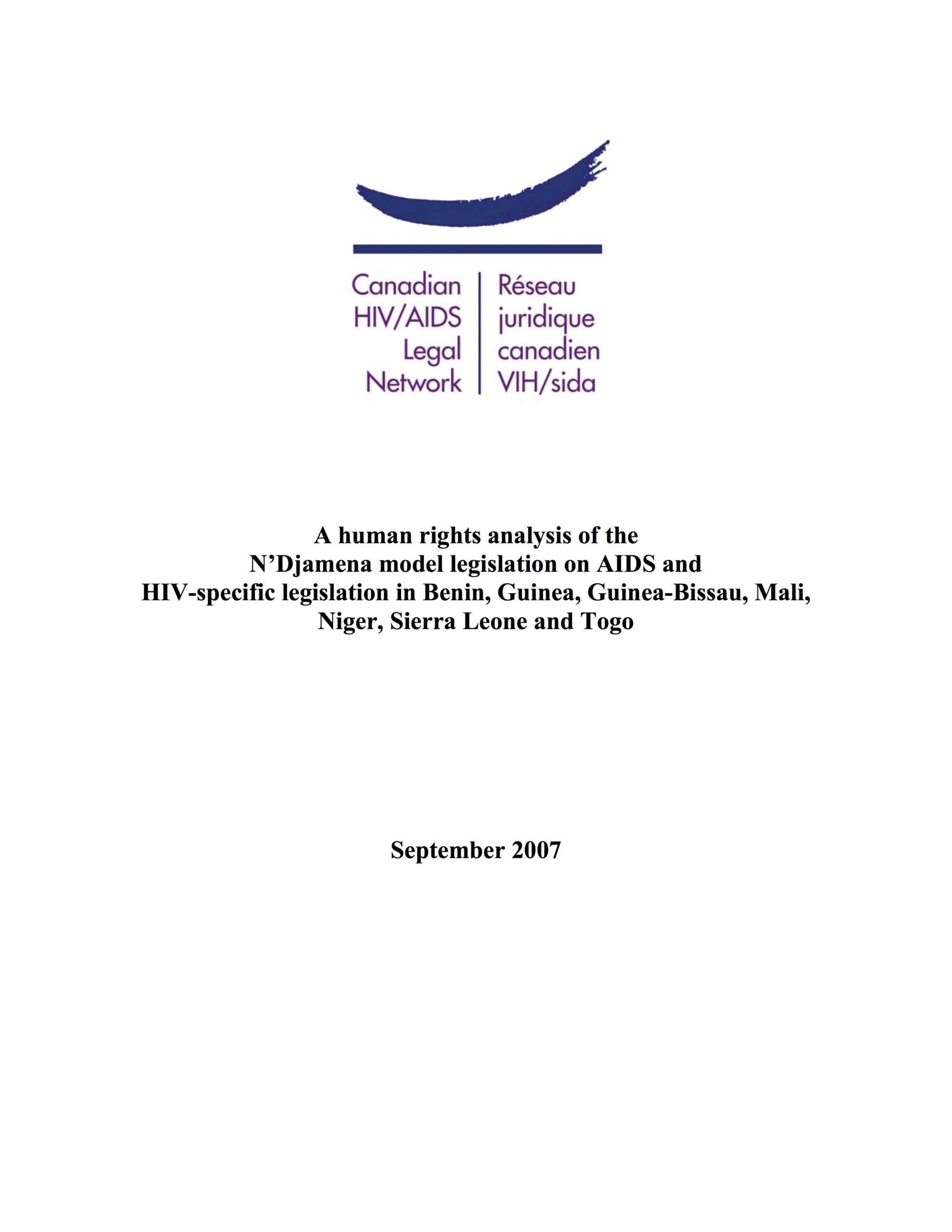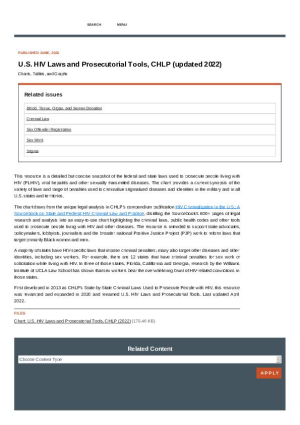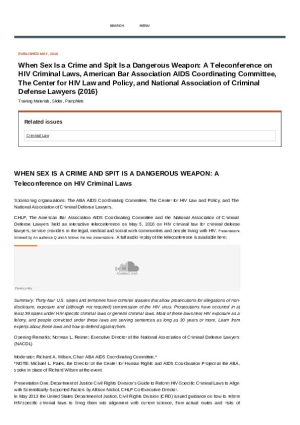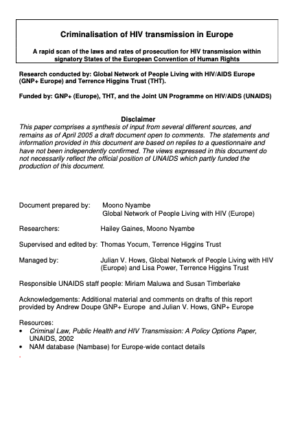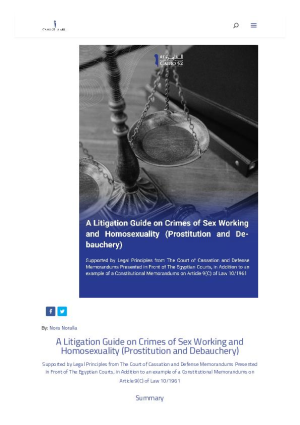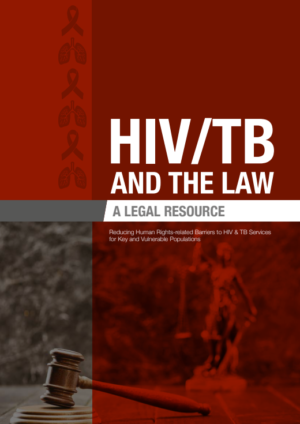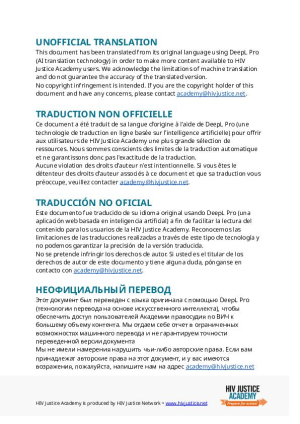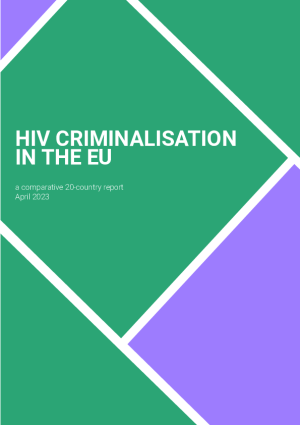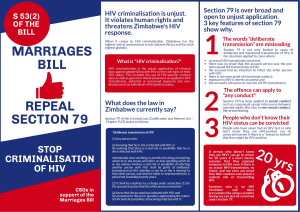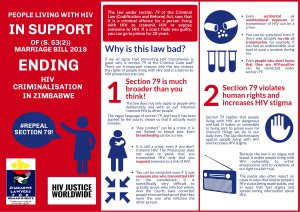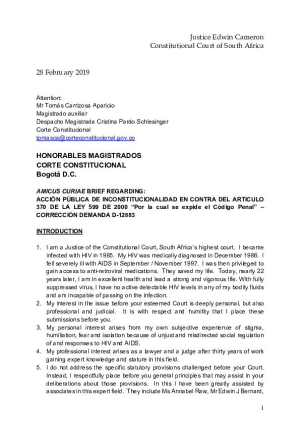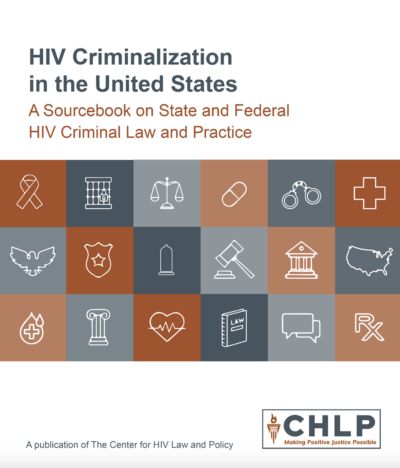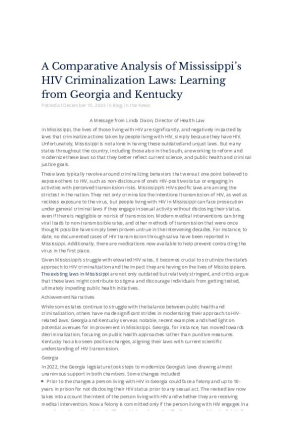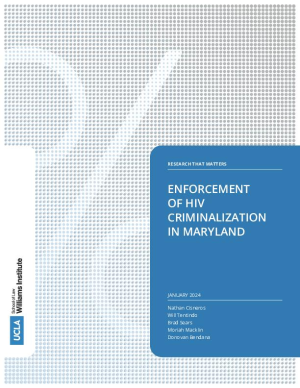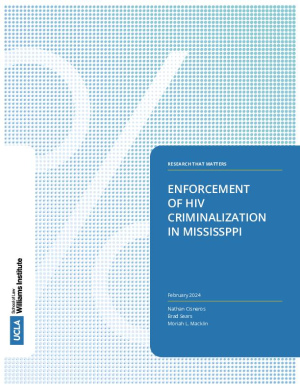Detailed information and analyses of HIV-specific legislation in seven Central and West African countries from a human rights perspective. Provides commentary on N’Djamena model legislation on HIV/AIDS (2004).
Understanding the Law
Knowing the Law
These resources clarify existing laws in particular countries. They represent good examples of advocates’ work to discover and understand the law in their jurisdictions. Resources include charts (listing laws), maps and articles.
HIV-specific legislation in sub-Saharan Africa: A comprehensive human rights analysis
Analyses key provisions in HIV-specific laws, outlining both protective and punitive provisions including criminalisation of HIV non-disclosure, exposure and transmission. Argues these provisions are generally overly broad, disregarding the best available recommendations for legislating on HIV; failing the human rights test of necessity, proportionality and reasonableness; consecrating myths and prejudice; and undermining HIV responses.
U.S. HIV Laws and Prosecutorial Tools, CHLP (updated 2022)
This chart from the Center for HIV Law and Policy, developed in 2013 and last updated in 2022, details each U.S. state’s HIV-specific laws in relation to various areas including spitting, biting, sharing needles, sex, and sex work, as well as HIV-specific sentence enhancement.
Comparative Sentencing Chart on HIV Criminalization in the United States
This chart, published by the Center for HIV Law and Policy in 2012, compares U.S. legislation on sentencing for HIV exposure, non-disclosure, and transmission with laws punishing drinking and driving, reckless endangerment of others, and vehicular homicide, showing HIV exposure frequently carries far higher sentences than more dangerous crimes.
When Sex is a Crime and Spit is a Dangerous Weapon: A Snapshot of HIV Criminalization in the United States
Map by the Center for HIV Law and Policy showing details of U.S. states with HIV specific laws, HIV-related prosecutions, sentence enhancement provisions, and sex offender registration.
Criminalising contagion – Legislative epidemics: the role of model law in the transnational trend to criminalise HIV transmission
Explains how an epidemic of HIV criminalisation laws spread across the West and Central Africa regions enabled by model laws (the N'Djamena Model Law) drafted by USAID.
GNP+ and THT. Criminalisation of HIV transmission in Europe: A rapid scan (2005)
This paper, prepared by Moono Nyambe at GNP+, and managed by Julian Hows (GNP+) and Lisa Power (Terrence Higgins Trust) comprised a synthesis of input from several different sources, pubished in April 2005 as a draft document open to comments. The statements and information provided in this document are based on replies to a questionnaire and have not been independently confirmed. The views expressed in this document do not necessarily reflect the official position of UNAIDS which partly funded its production.
Respondents from 41 out of 45 countries provided information for the study. Of the respondents from the 41 countries that were able to provide information, it was reported that in at least 36 countries the actual or potential transmission of HIV can constitute a criminal offence. This supported anecdotal evidence that increasingly the law is seen as a tool for regulating conduct that can lead to HIV transmission. In 21 of these countries, it was reported that at least one person has been prosecuted.
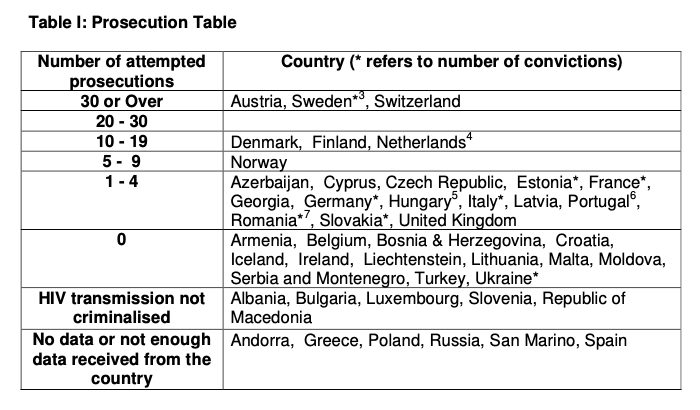
A Litigation Guide on Crimes of Sex Working and Homosexuality
This an English Summary of the book “A Litigation Guide on Crimes of Sex Working and Homosexuality (Prostitution and Debauchery) “. The book aims to provide a litigation guide and a legal overview of principles and procedures to legal advocates and whoever wishes to know more about “prostitution” or “debauchery” crimes under Egyptian law.
HIV criminalisation laws around the world
HIV criminalisation is a global phenomenon, with problematic legislation in every region of the world. Countries criminalise people with HIV for transmission, exposure and/or non-disclosure of HIV status. This page provides a brief overview with global examples and a link to more detailed and up-to-date information by country.
Judgment C-248/19 – Lawsuit challenging the constitutionality of Article 370 of Law 599 of 2000 “Whereby the Criminal Code is issued.”
The decision of the Constitutional Court of Colombia to eliminate section 370 of the criminal code that criminalised the transmission of HIV.
Reducing Human Rights Related Barriers to HIV & TB Services for Key and Vulnerable Populations: Legal Support Resource
The legal support resource is part of an on -going human rights programme with the goal of reaching key and vulnerable populations by utilising customised and targeted interventions. These interventions include activities on (1) legal empowerment;(2) training of paralegals on issues related to HIV, TB and human rights; (3) legal and paralegal support to community members whose human rights have been violated including pursuing identified matters to court; and (4) sensitisation of judiciary, law makers and traditional leadership especially those involved in traditional courts.
It gives practical information on current and evolving legislation, common law and policies pertaining to HIV and TB in South Africa. The aim is to educate, sensitise and provide updated information to paralegal and legal practitioners alike, who are engaged in offering legal advice and services to individuals and communities who serve members of the vulnerable and key populations.
Supreme Court of Finland R2012/1093 – KKO:2015:83
A, aware of his HIV infection, had several times unprotected anal sex with B without telling him about his illness. B had not been infected with HIV. The question of whether A had caused a serious danger to B's life or health.
This document has been translated from its original language using DeepL Pro (AI translation technology) in order to make more content available to HIV Justice Academy users. We acknowledge the limitations of machine translation and do not guarantee the accuracy of the translated version.
Original text is available at https://finlex.fi/fi/oikeus/kko/kko/2015/20150083
Analysis of the national legislation of the Georgia related to SOGI and HIV
HIV Criminalisation in the EU – A comparative 20 country report
In 2020, AAE published a comparative 10-country report on HIV criminalisation, which provided a basis for future advocacy activities on the issue. The current report builds upon the 2020 report, while adding the data from new 10 EU Member states. The report includes information on the impact of legislation introduced during the COVID-19 pandemic, as well as trends, developments, and expected changes regarding the criminalisation of HIV.
Zimbabwe Marriages Bill – repeal section 79
In this brochure, CSOs in support of the Marriages Bill explain what the Section 79 of the Criminal Law currently say and why it is over broad and open to unjust application.
People Living with HIV in support of (S. 53(2)) MARRIAGE BILL 2019 IN ZIMBABWE
In this brochure, Zimbabwe Lawyers for Human Rights and HIV Justice Worldwide explain why the section 79 of the Criminal Code violates the rights of people living with HIV and is a barrier to HIV prevention and care.
Constitutional Court of South Africa – Amicus Curiae Brief – Justice Edwin Cameron
Amicus Curiae Brief regarding the Public Action of Constitutional Challenge against Article 370 of Law 599 from 2000.
HIV Criminalization in the United States: A Sourcebook on State and Federal HIV Criminal Law and Practice, CHLP (updated January 2024)
"This resource for lawyers and community advocates outlines punitive laws, policies, and cases affecting people living with HIV (PLHIV) and other communicable diseases in all 50 states, the military, federal prisons, and U.S. territories. This Third Edition of the Sourcebook was originally published in 2017 and was updated in January 2024." CHLP
Enforcement of HIV Criminalization in Ohio
This study examines the history of HIV criminalization in Ohio and analyzes key trends in the enforcement of the state’s HIV-related criminal laws between 2000 and 2022 using data from the Ohio Incident-Based Reporting System (OIBRS) and HIV-related criminal court cases.
HIV Criminalization in Indiana: Evaluation of Transmission Risk
Indiana has six laws that criminalize people living with HIV, spanning both the public health and criminal codes. This study evaluates whether these laws reflect current understandings of HIV science and criminalize conduct that poses negligible or no risk of transmitting HIV.
Uzbekistan 2022 — Homophobia and Persecution Encouraged in Society
In October 2020, Uzbekistan was elected to the UN Human Rights Council for the period from 2021 to 2023. According to the resolution establishing this Council, a member country must «uphold the highest standards in the promotion and protection of human rights1». In 2022, ECOM registered 80 cases of violations of the rights of LGBT people. This report illustrates multiple unresolved problems in Uzbek society that are largely supported by the inaction of the authorities
A Comparative Analysis of Mississippi’s HIV Criminalization Laws: Learning from Georgia and Kentucky
While some states continue to struggle with the balance between public health and criminalization, others have made significant strides in modernizing their approach to HIV-related laws. Georgia and Kentucky serve as notable, recent examples and shed light on potential avenues for improvement in Mississippi. Georgia, for instance, has moved towards decriminalization, focusing on public health approaches rather than punitive measures. Kentucky has also seen positive changes, aligning their laws with current scientific understanding of HIV transmission.
A Comparative Look at HIV Laws in the Deep South: Mississippi vs. Tennessee, Alabama, and Louisiana
The Deep South has long been grappling with the HIV epidemic. While significant strides have been made in HIV prevention and treatment nationwide, the legal landscape regarding HIV varies considerably from state to state. In this blog post, we will compare Mississippi’s HIV laws with those of other Deep South states, namely Tennessee, Alabama, and Louisiana. Understanding how these states approach HIV-related legislation can shed light on the progress made and areas that still need attention in Mississippi.
Enforcement of HIV Criminalization in Maryland
Using data obtained from the Maryland State Administrative Office of the Courts, this study from The Williams Institute examines the enforcement of HIV criminalization laws in Maryland.
Highlights:
- Nearly two-thirds of U.S. states and territories have laws that criminalize people living with HIV.
- Black people, especially Black men, are overrepresented in HIV-related crimes in Maryland.
- Over two-thirds of people charged with HIV-related crimes were charged in Baltimore City, Montgomery County, or Prince George's County.
Enforcement of HIV Criminalization in Mississippi
The Williams Institute analyzed data from the state of Mississippi about individuals arrested for an allegation of an HIV-related offense under Section 92-27-14 of the Mississippi Criminal Code. The study revealed at least 43 people arrested between 2004 and 2021.
HIV and the LAW in Australia: National Audit
This is an audit of Australian laws and policies undermining the goals and key areas of action of the National HIV Strategy. This audit deals mainly with three topics, which have a substantial and adverse impact on persons with HIV as well as other marginalised communities and the broader Australian population. These laws: criminalise HIV transmission, exposure and the failure to disclose HIV status to a sexual partner; define consent in a way that exposes people with HIV to criminalisation; and enable Mandatory Disease Testing (MDT) that adversely impacts people with HIV. For each of these topics, this audit: sets out the relevant laws of each state and territory in Australia; notes the key issues in the area; and outlines suggestions on law reform options.

